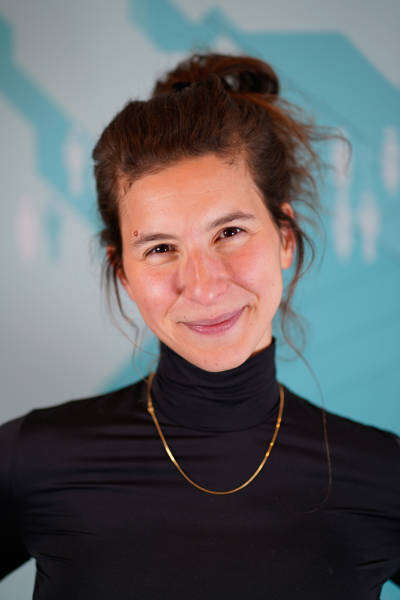Júlia Palik: All news
25 news items
Monique Bennett successfully defended her PhD thesis
Extended Application deadline: Two new postdoctoral positions at PRIO
The deadline for the two postdoctoral positions has been extended to 26 January 2026. The positions, in social psychology and anthropology, are part of the ERC-funded project Rituals in Combatant-to-Civilian Transformation (Com2Civ), led by Júlia Palik.
PRIO secures new funding from RCN and ERC
PRIO researchers have recently been awarded grants for exciting new projects, from the Research Council of Norway (RCN) and the European Research Council (ERC).
PRIO Senior Researcher Julia Palik secures prestigious ERC grant to study how rituals shape the social reintegration of former combatants
PRIO is immensely proud to announce that Senior Researcher Julia Palik has been awarded the highly competitive European Research Council (ERC) Starting Grant for the groundbreaking project titled Com2Civ: Rituals in Combatant-to-Civilian Transformation.
The Complex Risk Analytics Fund supports new project on Women’s Empowerment in War and Peace: EMPOW
EMPOW is a two-year initiative designed to provide novel open access data on women's mobilization for peace and gender equality reforms in the wake of war.
New JPR Editorial Team
Gudrun Østby and Sebastian Schutte are replacing Scott Gates as Editors-in-Chief of the journal, while Juliane Stötter replaces Bertrand Lescher-Nuland as Managing Editor.
International Peace Mediators Gather in Oslo to Strengthen Women’s inclusion in Peace Processes
Over two dozen top peace negotiators gather this week in Oslo for the thirteenth UN High-Level Seminar on Gender and Inclusive Mediation Strategies.
New figures show conflict-related deaths at 28-year high, largely due to Ethiopia and Ukraine wars
The war in Ethiopia's Tigray region accounted for over 100,000 battle-related deaths in 2022, even more than Russia's invasion of Ukraine which accounted for more than 81,000 deaths, according to new conflict trends data released today.
Transactional Engagements: Middle Eastern Responses to the Ukrainian War
Russia’s war in Ukraine has been met with global condemnation drawing NATO and the EU closer together in coordinating collective responses.
Ukraine: PRIO Expertise
The most relevant PRIO researchers to comment on aspects relevant to the Russia-Ukraine War are listed here.
Call for Applications: Research Assistant Position at PRIO
PRIO seeks to recruit a Research Assistant in a 50% position, to work for 10 months on the DISARM project within the CVP department.
New Project on Disarmament
The DISARM project seeks is to identify the impact of disarmament processes on conflict recurrence and pinpoint the conditions under which disarmament can be the most effective.
5 PRIO Projects Funded by the Research Council of Norway
Today we got the news that five PRIO-led projects have succeeded in the most competitive calls for funding from the Research Council of Norway.
The Challenges of Ceasefire Monitoring in Yemen
In her new article in International Peacekeeping, Senior Researcher Júlia Palik addresses the challenges of ceasefire monitoring in Yemen.
PRIO Joins EU Network of Non-Proliferation and disarmament think tanks
PRIO has now joined the European Network of non-proliferation and disarmament think tanks, established by the EU Non-Proliferation and Disarmament Consortium.
New Report on Conflict Trends in the Middle East
In their first-ever report to examine conflict trends in the Middle East, PRIO researchers take a closer look at the hard data on the number of conflicts – between states, within states, as well as one sided violence – and at ceasefires as well as peace agreements.
New Podcast: PRIO's Peace in a Pod
How can we explain peace and conflict in the world? What do security and insecurity do to a region and its people? How do different kinds of violence affect people, and how do societies tackle crises – and the threat of crisis? The Peace Research Institute Oslo brings you expert opinions on the headlines, personal stories from the field, and cutting-edge research in this weekly podcast.
COVID-19 in the Middle East: Different Regimes, Different Responses
In May, a new PRIO Middle East Centre project started.
Journal of Peace Research, Security Dialogue: Improved Rankings
Security Dialogue (SD) and the Journal of Peace Research (JPR) remain in the top quartile of journal rankings.
Successful Thesis Defense by Júlia Palik
Júlia Palik successfully defended her PhD dissertation titled: Interstate Rivals' Intervention in third party civil wars: The comparative case of Saudi Arabia and Iran in Yemen (2004-2018) at the Corvinus University of Budapest.
Annual meeting of Nordic Women Mediators successfully convened online
Discussed Women, Peace and Security and Covid-19
Introducing the MidEast Policy Brief Series
The MidEast Policy Brief series was launched in late 2019.
Humanitarian Aid Allocated to Education Doubled Between 2015 and 2018, PRIO Researchers Find
The amount of humanitarian aid allocated to education doubled between 2015 and 2018 and Norway has reached the global goal of allocating 4% of their humanitarian aid to the sector.
Researchers from the PRIO Middle East Centre participated in Institute for Palestine Studies seminar in Beirut
Upon invitation from the Institute for Palestine Studies (IPS), Middle East Centre researchers Júlia Palik, Bruno Oliviera Martins, and Nic Marsh participated in a closed seminar on the future strategic changes and challenges in the Middle East.
New JPR Editorial Team
Scott Gates is taking over from Gudrun Østby as Editor of the Journal of Peace Research.






